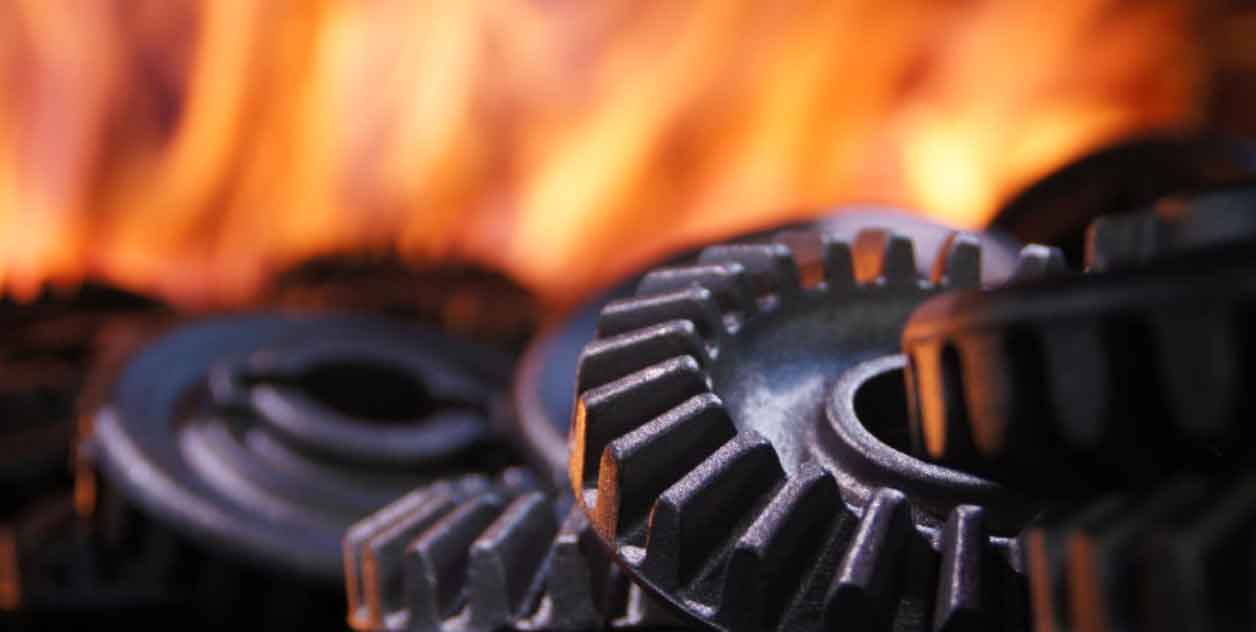
Gear forgings serve as the cornerstone of heavy-duty machinery, providing the necessary strength, durability, and reliability required to withstand the demanding conditions of industrial applications. With their exceptional load-carrying capacity and robust construction, gear forgings play a crucial role in ensuring the smooth and efficient operation of heavy-duty machinery. This article explores the significance of gear forgings in heavy-duty machinery and highlights their key attributes.
I. High Load-Carrying Capacity:
Heavy-duty machinery operates under extreme loads and forces. Gear forgings, with their superior strength and durability, are capable of handling these high loads. The controlled deformation during the forging process refines the grain structure of the metal, resulting in gear components with exceptional load-carrying capacity. Gear forgings can withstand heavy shock loads, torque, and bending moments without compromising their structural integrity, ensuring reliable performance in heavy-duty applications.
II. Enhanced Durability and Wear Resistance:
Heavy-duty machinery often operates in harsh environments where wear, abrasion, and impact are prevalent. Gear forgings exhibit excellent durability and wear resistance, making them suitable for such demanding conditions. The forging process eliminates internal defects and voids, creating gears with a uniform grain structure that enhances their resistance to wear, pitting, and surface fatigue. Gear forgings can endure the repetitive stress and abrasive forces encountered in heavy-duty machinery, ensuring long service life and reducing downtime.
III. Reliable Power Transmission:
Efficient power transmission is critical in heavy-duty machinery. Gear forgings ensure reliable power transmission by providing precise tooth profiles and accurate gear meshing. The controlled shaping of gear teeth during forging ensures proper alignment and engagement, minimizing backlash and ensuring smooth power transfer. Gear forgings contribute to minimal power losses, reduced vibration, and enhanced overall system efficiency, enabling heavy-duty machinery to operate at optimal performance levels.
IV. Resistance to Fatigue and Overload:
Heavy-duty machinery is often subjected to cyclic loading and occasional overload conditions. Gear forgings excel in such scenarios due to their exceptional fatigue resistance. The refined grain structure achieved through forging reduces the risk of fatigue failure, ensuring reliable gear performance even under cyclic and high-stress conditions. Gear forgings can withstand occasional overloads without compromising their structural integrity, maintaining the safety and functionality of heavy-duty machinery.
V. Customization and Design Flexibility:
Gear forgings offer customization and design flexibility to meet the specific requirements of heavy-duty machinery. The forging process allows for the creation of complex gear geometries, splines, and custom features tailored to the application’s needs. Engineers can optimize gear designs to achieve the desired performance characteristics, including load distribution, torque transmission, and system efficiency. Gear forgings enable the production of gears precisely matched to the heavy-duty machinery’s unique demands, ensuring optimal performance and reliability.
VI. Applications in Heavy-Duty Machinery:
Gear forgings find extensive use in various heavy-duty machinery applications, including:
- Construction Equipment: Gear forgings are employed in bulldozers, excavators, loaders, and other construction machinery to provide reliable power transmission and withstand heavy loads.
- Mining Equipment: Gear forgings are utilized in mining trucks, excavators, and drilling machines to withstand the harsh conditions of mining operations and ensure efficient power transmission.
- Oil and Gas Equipment: Heavy-duty machinery in the oil and gas industry, such as drilling rigs, pumps, and compressors, rely on gear forgings to deliver reliable performance under extreme operating conditions.
- Material Handling Equipment: Gear forgings are crucial components in cranes, forklifts, conveyors, and other material handling machinery, providing robust power transmission and durability.
Gear forgings form the cornerstone of heavy-duty machinery, offering the strength, durability, and reliability necessary for optimal performance in demanding industrial applications. With their high load-carrying capacity, enhanced durability, reliable power transmission, resistance to fatigue and overload, customization options, and wide range of applications, gear forgings ensure the smooth and efficient operation of heavy-duty machinery. Manufacturers across industries rely on gear forgings to withstand the toughest conditions and deliver consistent performance in heavy-duty applications.
